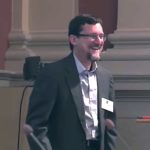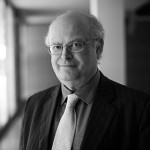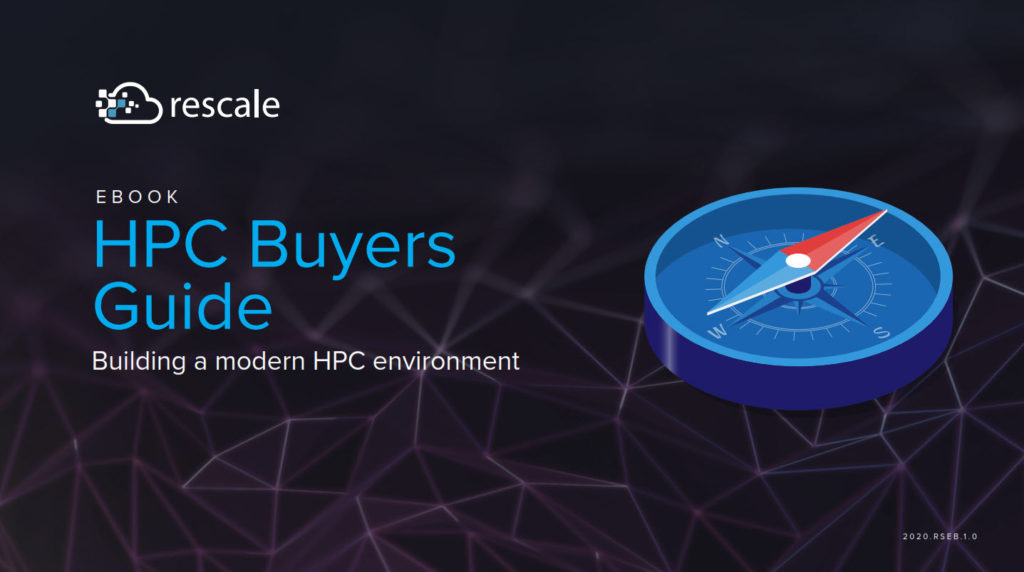Today Cray announced that Indiana University has selected a Cray Shasta supercomputing system to advance the use of AI across diverse research fields at the university. ” We’ve entered an age where AI is poised to transform the future of many industries–from healthcare to cybersecurity–and we’re confident the latest technology from Cray will meet our needs for a computing infrastructure that will build on the promise of AI in Indiana.”
John Shalf and Thomas Sterling to Keynote ISC 2019 in Frankfurt
Today ISC 2019 announced that its lineup of keynote speakers will include John Shalf from LBNL and Thomas Sterling from Indiana University. The event takes place June 16-20 in Frankfurt, Germany. “On June 18, John Shalf, from Lawrence Berkeley National Laboratory will offer his thoughts on how the slowdown and eventual demise of Moore’s Law will affect the prospects for high performance computing in the next decade. On June 19, Thomas Sterling will present his annual retrospective of the most important developments in HPC over the last 12 months.”
Indiana University Demonstrates World’s First Single-Channel 400G Network
Indiana University staff and faculty will build the world’s first single-channel 400-gigabit-per-second-capable network for research and education at SC18. The connection will be capable of transmitting 50 gigabytes of data every second—or, enough to stream 16,000 ultra-high-definition movie. The demonstration, “Wide area workflows at 400 Gbps,” is IU’s submission to the conference’s annual Network Research Exhibition, which spotlights innovation in emerging network hardware, protocols, and advanced network-intensive scientific applications.
Agenda Posted for HP-CAST at SC18 in Dallas
Hewlett Packard Enterprise has posted their Agenda for HP-CAST once again this year at SC18. The event takes place Nov. 9-10 in Dallas. ” HP-CAST meetings typically include corporate briefings and presentations by HPE executives, technical staff, and HPE partners (under NDA), and discussions of customer issues related to high-performance computing.”
Video: Lustre / ZFS at Indiana University
Steve Simms from Indiana University gave this talk at the DDN User Group meeting in Frankfurt. “ZFS backed OST’s can be migrated to new hardware or to existing reconfigured hardware by leveraging ZFS snapshots and ZFS send/receive operations. The ZFS snapshot/send/receive migration method leverages incremental data transfers, allowing an initial data copy to be “caught up” with subsequent incremental changes.”
SC17 Invited Talk Preview: High Performance Machine Learning
Over at the SC17 Blog, Brian Ban begins his series of SC17 Session Previews with a look at a talk on High Performance Big Data. “Deep learning, using GPU clusters, is a clear example but many Machine Learning algorithms also need iteration, and HPC communication and optimizations.”
Interview: Dr. Thomas Sterling on New Approaches to Efficient Supercomputing
In this video from KAUST, Professor Thomas Sterling, Professor of Intelligent Systems Engineering at Indiana University, shares his thoughts on new approaches to energy efficient supercomputing. “Our technical strategy focuses on the research and development of advanced technologies for extreme-scale computing and future exascale systems, including the following key elements: Execution Models; Runtime Systems; Graph Processing; Programming Interfaces; Compilers, Libraries, and Languages; Systems Architecture (Architecture, Power/Energy, Fault Tolerance, Networking), and Extreme Scale Applications and Visualization.”
Thomas Sterling Presents: HPC Runtime System Software for Asynchronous Multi-Tasking
Thomas Sterling presented this Invited Talk at SC16. “Increasing sophistication of application program domains combined with expanding scale and complexity of HPC system structures is driving innovation in computing to address sources of performance degradation. This presentation will provide a comprehensive review of driving challenges, strategies, examples of existing runtime systems, and experiences. One important consideration is the possible future role of advances in computer architecture to accelerate the likely mechanisms embodied within typical runtimes. The talk will conclude with suggestions of future paths and work to advance this possible strategy.”
OpenSFS Reinvents Itself with a Focus on Lustre Users
Today OpenSFS, the nonprofit organization dedicated to the success of the Lustre file system, announced organizational changes to give its users—the researchers and scientists who use Lustre every day—more of a say in how OpenSFS moves forward. “Now the time has come for those who rely most on Lustre—its users—to guide OpenSFS into the future,” said Stephen Simms, OpenSFS president and manager, high performance file systems at Indiana University.
Indiana University to Launch Three New HPC Systems
Indiana University plans to unveil three new HPC resources at a launch event on Sept 1: Jetstream, Big Red II+, and Diet. “With these new systems, IU continues to provide our researchers the leading-edge computational tools needed for the scale of today’s research problems,” said Brad Wheeler, IU vice president for IT and CIO. “Each of these systems is quite distinct in its purpose to meet the needs of our researchers and students.”












